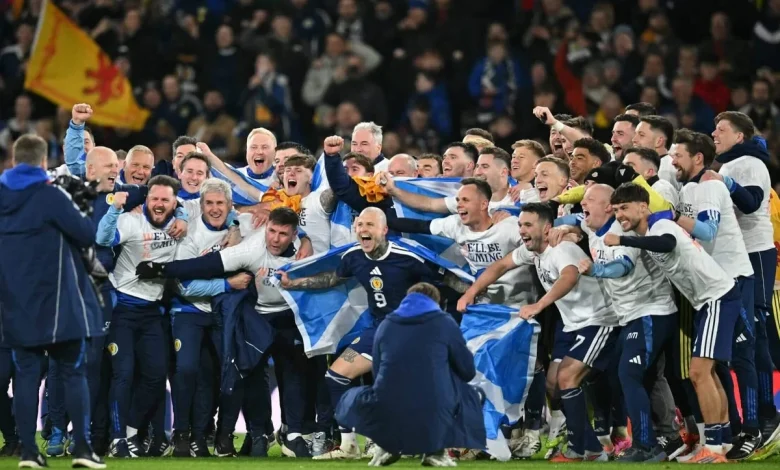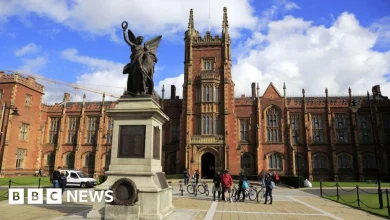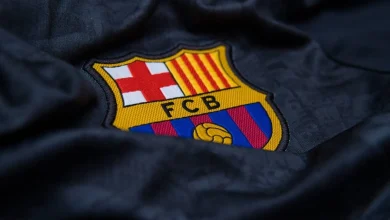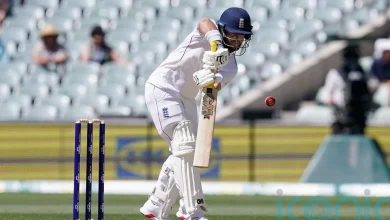You thought Scotland would flunk their big World Cup chance? You haven’t met this Scotland team – The Athletic

Follow The Athletic’s live coverage of today’s World Cup play-off draws.
He is known as ‘apribottiglie’ — the bottle opener — in Naples. The man who possesses the secret for scoring the first goal.
On Tuesday evening in Glasgow, as 27 years in the World Cup wilderness gnawed at the confidence of a nation, Scott McTominay used his Napoli tricks on home soil. He found the most astounding way to uncork a Hampden Park atmosphere that had been threatening to overflow since the a cappella version of Flower of Scotland at kick-off.
It was an overhead kick that defied gravity. Possibly the best goal in the Scotland national team’s history. Certainly on the podium with Archie Gemmill’s solo dribble to defeat the Netherlands in the 1978 World Cup and James McFadden’s stinger in Paris in 2007.
Scott McTominay scoring his spectacular overhead kick (Stu Forster/Getty Images)
A choice of technique so beautifully theatrical, it felt impossible that it had come from a Scottish boot. All week it seemed inevitable that Scotland would flunk their big chance or, at best, qualify with a shot deflected off someone’s backside. It is how Scottish fans have been conditioned to think for so long; self-deprecating at best, nihilistic at worst; getting ahead of the disappointment; finding the punchline before anyone else can. Plucky old Scotland, destined for glorious failure.
Just look at Gemmill and McFadden’s goals. Masterpieces on two glorious nights but both ultimately futile as Scotland still went home from Argentina at the group stage and never even made it to Euro 2008.
But McTominay was determined his strike would count for something. Amid the stupefying chaos of 50,000 crazed fans, he asked where his mum was. He then asked the stadium for calm. So did manager Steve Clarke.
Scotland’s head coach Steve Clarke (Andy Buchanan/AFP/Getty Images)
There were at least another 86 minutes left. Scotland had the goal they needed. Now what? That was the part no one had accounted for. As Denmark peppered the home goal, it dawned on everyone that they had committed the perverse sin of scoring too early.
On a night in which a goal of that magnificence would usually be the crowning moment, his acrobatics felt like ancient history come full-time as Scotland produced one of Hampden’s finest evenings to beat Denmark 4-2, courtesy of two stoppage time wonder goals, and secure the Tartan Army’s place at the World Cup next summer.
It was a night that proved there are always more pages to a Scotland script, even when it has a happy ending.
It had been 10,010 days since the 3-0 defeat to Morocco in St Etienne, June 1998 — Scotland’s last kick at a World Cup.
They had missed six consecutive editions: South Korea-Japan, Germany, South Africa, Brazil, Russia and Qatar. As Scotland attempted to defend their 1-0 lead in backs-to-the-wall mode, each failed campaign came to mind.
Shortly after half-time the pass count put Denmark at over 400 and Scotland just over 80. It could not last, and did not last.
Rasmus Hojlund scored a penalty after Andy Robertson was judged to have committed a foul millimetres inside his own penalty area.
Flashbacks of Italy’s controversial late goal in the agonising 2008 near miss appeared. But grievance was not in the air. It was relief. The equaliser had come early enough to give them time to respond with Denmark only needing a draw to secure top spot.
It forced Scotland to return to the mentality they started the game with. The fans had a second wind and Rasmus Kristensen got caught up in it, needlessly earning a second yellow card. With the man advantage, Hearts striker Lawrence Shankland looked to be the hero as he turned home a corner — tellingly Scotland’s first of the evening — in the 78th minute. Surely they could see out the final part with a man extra?
Four minutes later the nation’s conditioning kicked back in as Patrick Dorgu equalised. Scotland were going to have to do it the hard way via the play-offs.
A fan at the World Cup qualifier against Denmark in Glasgow (Ian MacNicol/Getty Images)
It was turning out to be the most typical Scottish anti-climax, until it was not. A team which made three of the last four major tournaments has found ways to get over the line. The euphoria of the shootout victory in Serbia to qualify for Euro 2020. Scoring twice in stoppage time in Norway and beating future champions Spain to secure their place at Euro 2024.
The pressure was increased on Tuesday. Many of this team knew it was their final shot at making a World Cup.
Craig Gordon, the 42-year-old who many thought would be forced to retire in 2012, due to injuries. Captain Andy Robertson, who started his career on the same amateur pitch with Queens Park over a decade ago when they were still clinging onto their amateur status. He is now 31. Lyndon Dykes, who was a factory worker on Australia’s Gold Coast at 19 but whose return to his parents’ birthplace led to a rapid rise from Queen of the South. John McGinn and McTominay, Scotland’s two most recognisable goal scorers, would be 35 and 32 come 2030.
It was another player approaching that precipice who proved the next hero Scotland needed. Kieran Tierney, a blistering full-back whose talents took him from his boyhood club Celtic to Arsenal and Real Sociedad, returned home this summer after injuries had blighted his trajectory.
He has been struggling to complete 90 minutes at club level but thrown on at right-back, the wrong side for a left-footer, it proved to be the perfect position as the ball broke to him at the edge of the box in the 93rd minute. He stepped onto it and curled a terrific shot into the far corner to give Scotland the goal they needed.
This time they only had two minutes to see it out. Surely? The referee had dragged it out further. So when Kenny McLean picked up the loose ball in the 98th minute and did not immediately kick it into touch, fears of a mishap shot through Scottish hearts. Stuart Armstrong had overcomplicated a breakaway in similar fashion in World Cup qualifying back in 2017, which saw England deny Scotland a famous victory in the 93rd minute.
For every great possibility, there is usually a dark memory lurking. On a night when calm had proven to be the enemy and only the pangs of desperation seemed capable of inspiring greatness, McLean nonchalantly lobbed Kasper Schmeichel from his own half. The entire Scotland staff came running onto the pitch and Hampden let out a screech that buried the referee’s full-time whistle.
Perennially criticised, the Mayor of Norwich is now the czar of Scotland’s greatest night having scored the winning penalty to end the country’s major tournament drought, the late winner in Oslo and now a goal from the halfway line.
There may never have been three goals of such magnitude, of such varying brilliance, scored by the same team in one game.
This Scotland team may not be the most glamorous to watch but they have repeatedly refused to fall into the category of glorious failures that has bequeathed previous generations.
Lyndon Dykes celebrates a spectacular Scotland victory (Ian MacNicol/Getty Images)
Yes, the qualifying routes have become easier but Scotland topped this group. There was no back door needed. Third-place Greece looked like the best team in the group, but bravery in big moments is what counts. Scotland had that.
“If I give myself a little bit of credit,” Clarke said, “It took me a year, 18 months to figure out how to take this team forward but I think I chose the right way.”
The answer was caps. Lots of them. The squad now has a dozen players with over 40.
Clarke didn’t wake up with knots in his stomach on Tuesday. A peculiar sensation for him but he soon realised why. He trusts these players and they repaid him by making him the first Scotland manager to qualify for three major tournaments.
This team delivered under pressure again. The only time they had failed to do so in qualifying was against Ukraine in 2022 when they “froze” in the World Cup play-off. It is the same fate that characterised their two appearances at the European Championships. They flatlined in 2021, despite two home games, and last summer were so meek in the group stage decider against Hungary that the question was whether Clarke had taken the team as far as he realistically could.
He has changed shape, but Scotland will need to improve again if they are to make an impact next summer. Having fought so hard to get there, these players cannot let another tournament pass them by.
For now, though, it was ‘No Scotland, No Party’, ‘Rocking all over the World’ and ‘Yes Sir, I Can Boogie’ as Hampden threw its biggest party since it sent off Ally MacLeod’s boys as hopeful victors in 1978.
Glasgow was the centre of the universe on Tuesday. Next June it will be across the Atlantic, where the Tartan Army will be coming down the road.





